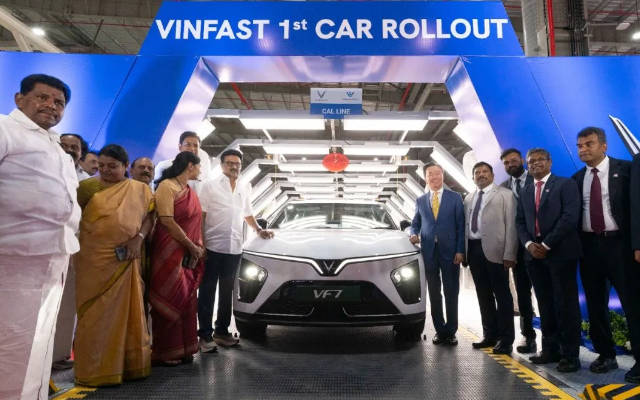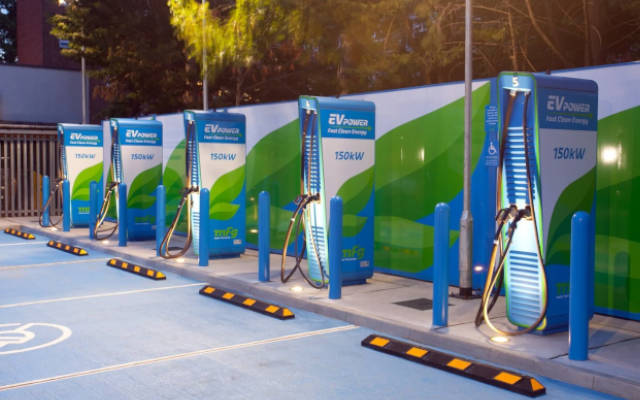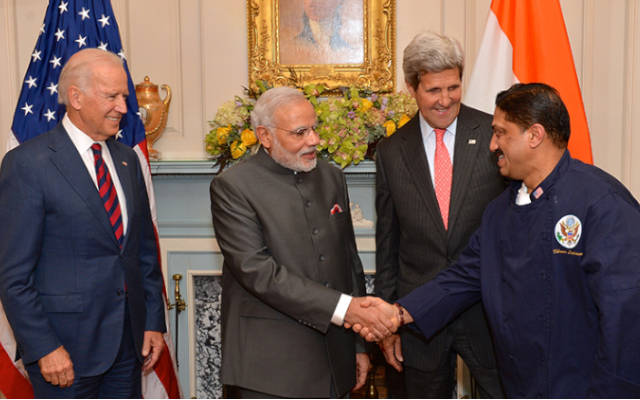 EDITOR'S PICK
EDITOR'S PICK
What's Keeping The Indian Middle Class From Driving An Electric Car?
11 Sep 2025 | Synopsis
 India’s middle class is hesitant to adopt EVs due to high import prices, limited public charging, and range anxiety. Tesla’s Model Y costs ₹6M ($68K), far above mainstream affordability. Local production is key—Vietnam’s VinFast and India’s Tata Motors offer EVs closer to ₹1–2.3M. With EVs at just 5.3% market share, scaling infrastructure and lowering costs are critical for broader adoption.
India’s middle class is hesitant to adopt EVs due to high import prices, limited public charging, and range anxiety. Tesla’s Model Y costs ₹6M ($68K), far above mainstream affordability. Local production is key—Vietnam’s VinFast and India’s Tata Motors offer EVs closer to ₹1–2.3M. With EVs at just 5.3% market share, scaling infrastructure and lowering costs are critical for broader adoption.Small Modular Reactors and the Big Questions of Cost & Waste
11 Sep 2025 | Synopsis
 A new study by Kim and Macfarlane finds small modular reactors (SMRs) face steep cost overruns and complex waste challenges. Promised savings rely on mass production that hasn't materialized, while some SMR designs may generate 2–30× more waste per unit of energy. With few commercial deployments and high uncertainty, SMRs remain a high-risk option compared to proven clean technologies.
A new study by Kim and Macfarlane finds small modular reactors (SMRs) face steep cost overruns and complex waste challenges. Promised savings rely on mass production that hasn't materialized, while some SMR designs may generate 2–30× more waste per unit of energy. With few commercial deployments and high uncertainty, SMRs remain a high-risk option compared to proven clean technologies.Why EV World Supports the New Heatwave Attribution Study
11 Sep 2025 | Synopsis
 A peer-reviewed Nature study links 213 heatwaves since 2000 to human-caused climate change, showing emissions from 180 major fossil fuel and cement producers made 53 of them "virtually impossible" without global warming. The study uses EM-DAT data and attribution science to quantify how specific corporate emissions increased deadly heatwave risks, offering a scientific basis for accountability in climate-related harm.
A peer-reviewed Nature study links 213 heatwaves since 2000 to human-caused climate change, showing emissions from 180 major fossil fuel and cement producers made 53 of them "virtually impossible" without global warming. The study uses EM-DAT data and attribution science to quantify how specific corporate emissions increased deadly heatwave risks, offering a scientific basis for accountability in climate-related harm.The UK, Netherlands, & California Have More EV Charging Ports Than Gas Pump Nozzles?
10 Sep 2025 | Synopsis
 The UK, Netherlands, and California now have more public EV charging ports than gas pump nozzles, marking a symbolic shift in transportation infrastructure. This milestone reflects rapid growth in electrification, policy support, and consumer adoption. It signals that EVs are not just viable - they're becoming dominant in key regions leading the clean mobility transition.
The UK, Netherlands, and California now have more public EV charging ports than gas pump nozzles, marking a symbolic shift in transportation infrastructure. This milestone reflects rapid growth in electrification, policy support, and consumer adoption. It signals that EVs are not just viable - they're becoming dominant in key regions leading the clean mobility transition.India's Altmin Lithium Project Becomes First To Join U.S.-Led Mineral Security Partnership
10 Sep 2025 | Synopsis
 Altmin became the first Indian firm to join the U.S.-led Mineral Security Partnership, acquiring lithium refining technology from Brazil to build the world's first spodumene-to-battery-grade refinery outside China. Initiated under the Biden administration, the milestone strengthens India's clean energy supply chain and reduces dependence on Chinese processing.
Altmin became the first Indian firm to join the U.S.-led Mineral Security Partnership, acquiring lithium refining technology from Brazil to build the world's first spodumene-to-battery-grade refinery outside China. Initiated under the Biden administration, the milestone strengthens India's clean energy supply chain and reduces dependence on Chinese processing.
 Si Exclusive
Si Exclusive
Hydrogen's Flight Path: Fuel Cells, Turbines, and the Economics of Clean Aviation
10 Oct 2025 |  Aviation is shifting from Jet A to four fuel systems: electricity, hydrogen (fuel cell and combustion), SAF, and petroleum. Fuel cells suit short-haul aircraft; hydrogen combustion may power long-range jets. SAF bridges legacy fleets. Hydrogen costs - $5-$7/kg today, possibly $2/kg by 2040 - impact ticket prices and infrastructure decisions. Airport authorities, airlines, and governments will share deployment costs. Each fuel has distinct environmental pros and cons shaping aviation's net-zero future.
Aviation is shifting from Jet A to four fuel systems: electricity, hydrogen (fuel cell and combustion), SAF, and petroleum. Fuel cells suit short-haul aircraft; hydrogen combustion may power long-range jets. SAF bridges legacy fleets. Hydrogen costs - $5-$7/kg today, possibly $2/kg by 2040 - impact ticket prices and infrastructure decisions. Airport authorities, airlines, and governments will share deployment costs. Each fuel has distinct environmental pros and cons shaping aviation's net-zero future.
 10 Oct 2025 23:11:40 UTC |
RECENT PODCASTS
BYD Soars - Cheaper Tesla Models - The Bolt is Back - Rivian
SEARCH RSSTREAM
 53 New Postings In Past 24 Hours
53 New Postings In Past 24 Hours
Category:finance
Region:NoAmerica
Date:10 Oct 2025
Category:policy
Region:NoAmerica
Date:10 Oct 2025
Category:mobility
Region:AsiaPacific
Date:10 Oct 2025
Category:mobility
Region:AsiaPacific
Date:10 Oct 2025
Category:finance
Region:NoAmerica
Date:10 Oct 2025
Category:finance
Region:IndoAsia
Date:10 Oct 2025
Category:energy
Region:Global
Date:10 Oct 2025
Category:energy
Region:NoAmerica
Date:10 Oct 2025
Category:finance
Region:NoAmerica
Date:10 Oct 2025
Category:finance
Region:Global
Date:10 Oct 2025